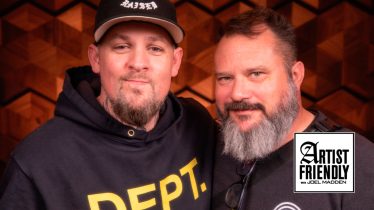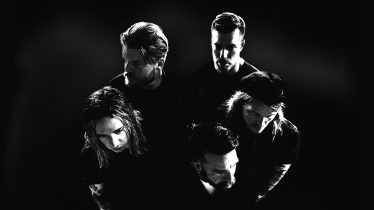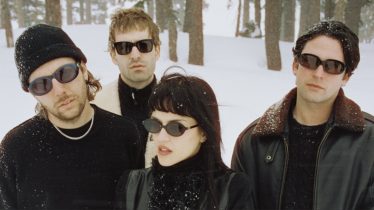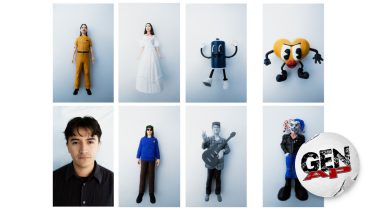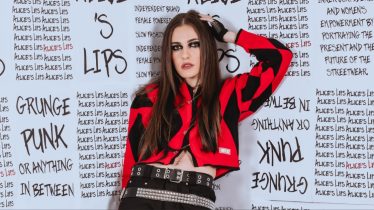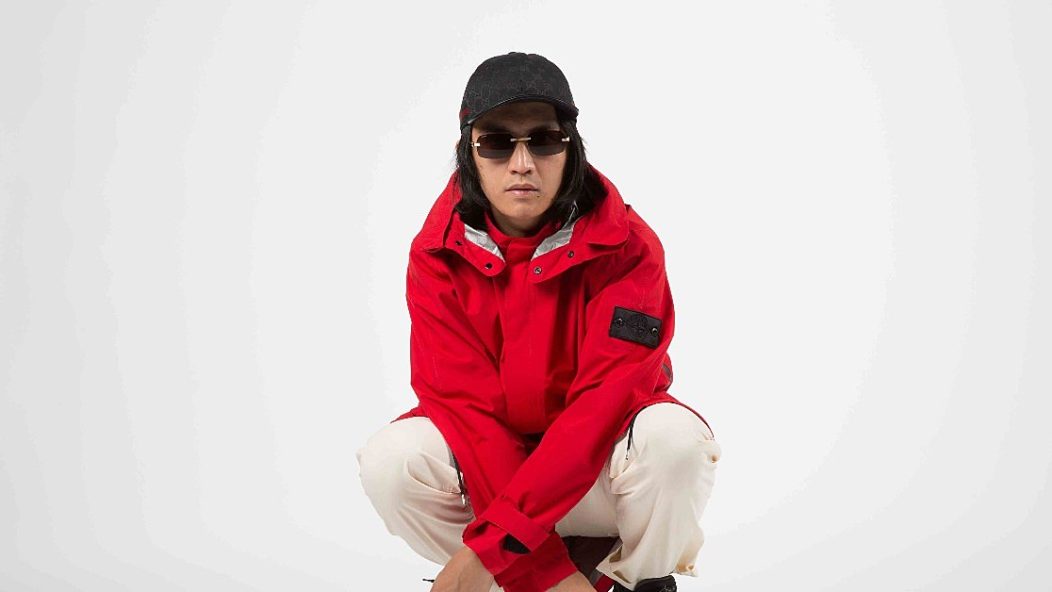
For Eyedress, speaking out about mental health is an artist’s greatest responsibility
From the start of his career, Eyedress has pushed himself. “When I moved to L.A., that was [a] difficult thing,” he remembers. “I was living on my own. I didn’t have my family anymore, but that was a good thing because I got to see what kind of person I really am on my own. That self-discovery really shaped me today.”
Read more: Remi Wolf took more risks in her music by learning to be uncomfortable
Some of his inspiration comes from his son, who likes anything to do with skateboarding, 3D animation and TikTok. “He’s made me want to do more animated videos because he literally watches TikTok with me, cheek to cheek,” he says.
No matter what he does, Eyedress puts his all into everything he touches. Behind all of his work is the motivation to speak up for the things he believes in, especially mental health. “If you’re not going to riot on the streets and protest,” he says, “at least speak about the right things just so that you know there’s actually knowledge in what you’re doing.”
You said that Mulholland Drive is “about loving yourself and your life.” How did you learn to do those things?
It sounds pretty cheesy, but growing up, I struggled with not loving myself, and going to school made me feel dumb. Loving myself happened the more good things happened in my life. Back in the day, I would be really unhealthy and toxic, but now that things have gotten better, it humbled me. I feel comfortable with myself now. Growing up, I’d be really insecure, and [there were] so many things that I didn’t know how to deal with.
Now that I’m older, I can assess everything in life, and I feel like my mind is healthy and not self-deprecating. [I’m not] putting myself down anymore. That came in time. Music wasn’t really going for me early on in my life, so the more it caught on and the more things got better for me, the more I was able to really appreciate myself because I felt like I was doing something right.
Do you have any tips for those who may be struggling to do the same?
Confronting the harsh truths. I would put off a lot of things in my life, and I think that accumulated over time and made things worse. [Go] into the pain rather than putting it off and putting a blanket over it — that’s not going to heal the wounds. The most transforming thing is when you actually confront it, and you put yourself in that uncomfortable position.
You collaborated with YUNGMORPHEUS to produce Affable With Pointed Teeth. What did you learn from that experience as a producer, and did you pick up anything that you’re going to incorporate into future releases?
That’s just always been a pastime for me, producing for other artists. With hip-hop, that kind of stuff just came naturally because when I was a teenager, that’s when I discovered sampling. I was more of a band dude. I played instruments and stuff. When I discovered sampling, I had this new thing to do besides writing songs on guitar. [Affable With Pointed Teeth] is me showing what else I could do besides making rock music. I like a lot of stuff. I could venture off into the electronic music world, or I can go into this little sampling stuff and go to indie-rock stuff. I like showing that diversity. I feel like that’s what makes me, me. Some artists just stick to one thing, but I’ve always been like, “I’m an artist, no matter what I’m doing, whether I’m making videos or taking pictures.”
You’ve openly talked about self-image and mental health in the past during interviews and on social media. Why do you think it’s important to be transparent about these topics?
When I was younger, I used to drink a lot and do stupid stuff. Mental health is important because some people need to check themselves. If they can fix things before it gets too crazy, they should do it. People should be aware that your mind is a powerful thing. I have a friend who killed himself, so I feel like your mental health should be highlighted in your face. I think people in my generation are very conscious of being in tune with everything because we live in a crazy world.
I’m really sorry to hear about your friend.
Yeah, that definitely made me want to check up on my friends all the time — make sure they’re not going into a dark place and help them believe in themselves and know that they’re worthy of love. It sounds corny to be the friend who’s like, “Oh, let’s just be positive.” But sometimes it takes a lot of strength to be that person, too. I think people should always know it’s good to talk about this because you might save someone.
What do you think your greatest responsibility as a musician is?
Speaking out on mental health is definitely one of them. I have a kid, and I’m representing other parents, too. So you gotta do what’s right. Making sure you’re creating a safe environment [is another responsibility]. [I want to] push it a bit. I like seeing kids going crazy at the mosh pit, but we don’t want them to die or anything, especially after the Astroworld [Festival] stuff. I want to have fun shows that everyone can go [to]. I think now, especially after Astroworld, you definitely want to have a safe [space], especially if you’re going to have younger kids [there]. Their mom shouldn’t have to worry.
What was your greatest accomplishment last year?
Getting through [the day]. That is my biggest accomplishment nowadays. The biggest accomplishment is to keep doing this consistently because you could fall off at any moment. My accomplishment is being healthy, and that’s it, really. Just taking care of everything, being present. That’s the best thing that you could thank yourself for. I’m still alive today, and hopefully, [I could] save a life or two by saying something nice to someone.
This interview appeared in issue 401 (the AP Yearbook), available here.
